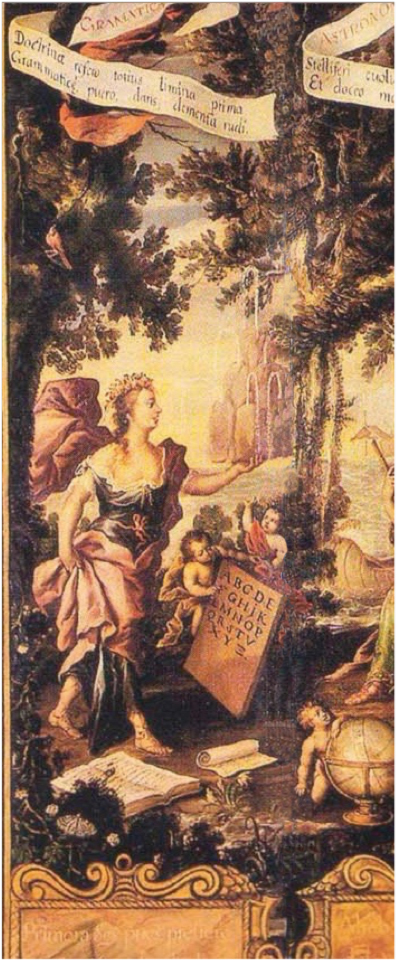This year I ran two seminars for graduates specializing in early modern history and literature: "The Latin of America," which focused on Latin texts produced in 16th-century Mexico; and Antiquity and Innovation in the Hispanic Renaissance, a survey of Spanish literature from the Americas as well as the Iberian peninsula.
In the early part of the summer of 2019, a Plumer Fellowship at St Anne’s College, Oxford enabled me to examine some works of Renaissance speculum literature in the Bodleian Library, in order to assess their influence on natural and ‘moral’ or ethnographic histories of the New World. I was also invited to lecture at a Leverhulme-funded colloquium, Colonial Legacies Revisited, held at King’s College London. Later in August, I gave a course at the Institute of Philological Investigations at the National Autonomous University of Mexico, ‘Los orígenes del humanismo clásico en Nueva España.’ An unexpected outcome of the trip to Mexico was Andrés Iñigo Silva’s discovery that a book in Spanish which was thought to have been lost (and which I had only read in a contemporary 16th-century translation) survives after all — in the library the Complutense University in Madrid: Fray Cristóbal Cabrera’s Flores de consolación (Valladolid, 1549). The volume contains translations of a large number of consolatory maxims extracted from classical and patristic authors, which Cabrera made for Doña Juana de Zúníga, wife of the conquistador Hernán Cortés. Last September I presented a paper on Angelo Poliziano’s history of time at an early modernists’ conference on ‘Temporalities, Ideologies Poetics’ held in Venice with the sponsorship of the British Academy. Last November I directed a Folger Institute Faculty Seminar, The Visual Art of Grammar, which the Center for the Study of the Early Modern World hosted at Brown University, and in February 2020 I delivered the Poultney Lecture at the Johns Hopkins University Department of Classics. I also presented a paper at the Columbia Classical Seminar.
My publications in 2019-20 included an essay on Latin and Amerindian languages for the Transactions of the American Philological Association (149.2), an article on the scholarship and writing of native Mexican Latinists in the 1500s for the second issue of an exciting new online periodical, the Journal of Latin Cosmopolitanism and European Literature, and a series of book chapters, each on the reception of a different classical author in colonial Mexico — Lucretius, Virgil, Ovid and Apuleius — are coming out this year.
